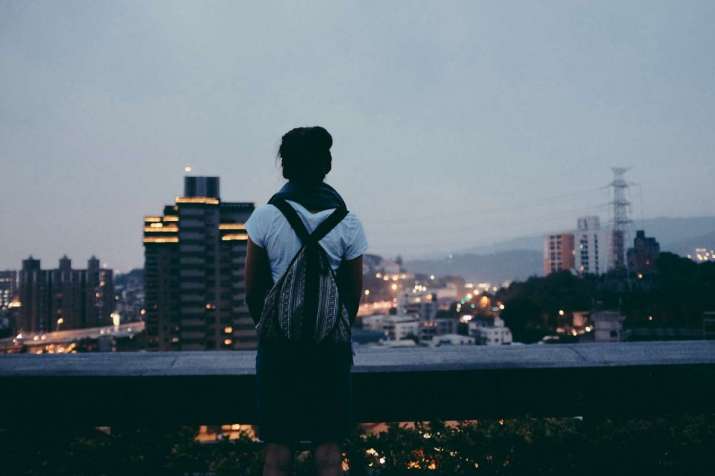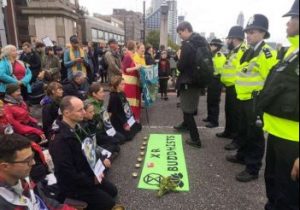
I recently experienced a serious bout of existential angst. I awoke feeling rather inadequate and unfulfilled; it was a gnawing, unsettling feeling. Big questions about the meaning of life and my purpose on this planet were invading my mind persistently. This was rather interesting as I’m usually the one doling out gyan (Hin: advice) to others on these very questions, but coming face to face with my own fallibility and a seeming lack of real direction or meaning in my life, I had a massive case of existential anxiety.
The moments turned into hours until, by the end of the day, I had pretty much exhausted myself in trying to figure out the meaning and purpose of my life to no avail. I sought relief by calling a few friends and that is when the penny dropped: we are all struggling with our own fears and aspirations and we always fall short in our own eyes. There is always something we could have or should have done better or differently. There is always someone we could have or should have loved, appreciated, or forgiven. There is always that trip I should have taken, or that job I should have accepted. There are so many “should haves” or “could haves” that merely thinking about the untrodden paths and the unexamined alternatives becomes so heavy we feel as though we must surely break under the weight.
I twisted and turned trying to think of ways of getting out of this mindset of self-flagellation, but my thoughts continued to work against me. I then tried to settle my mind by tunring my attention to my breathing. Usually, we breathe without thinking and our inhalations and exhalations reflect our state of mind. An unsettled mind is reflected by short, shallow breaths. In order to calm my mind I took long, deep breaths. It sounds easy, but an unsettled mind tries to put barriers in the way of even this simple act. Somehow I forced myself to continue, starting off with alternate nostril breathing and following that with long deep breaths. When our outgoing breath is longer than our incoming breath our nervous system is eased into a state of relaxation. My mind started to calm down, but the unanswered questions remained.
Next, I turned on some really loud Bollywood music—I chose “Chikni Chameli” from the 2012 movie Agneepath. I shut the bedroom door and danced as if no one was watching, and luckily no one was! The combination of physical movement and breath control did seem to have a relaxing effect on my body and mind. Once I was less agitated, I was better able to reflect over what really was troubling me. It turned out, to my amusement and relief, that I was experiencing a case of premenstrual syndrome, but what if I had been unable to find an explanation for my condition? What if the thoughts I was having really were those of a true personal crisis?
Almost all of us have our moments. Being a happiness coach does not make me immune to my own crises, existential or otherwise. I had been sitting on my bed, struggling to answer the questions bubbling in my head, but the answers never appeared. Unlike fear, which is a psychological response to a perceived threat, anxiety often has no discernible cause and can pervade our whole being. This is far more insidious than fear as it originates in our own mind and might have no external trigger.
Unfortunately we cannot fight or run away from our mind, for the more we fight the more the mind retaliates and takes us into a tailspin. I’ve met many people who go through existential anxiety trying to figure out the meaning of their life and its purpose. Some try to find that meaning in their work, some in relationships, others in their social lives. Some keep themselves busy, immersing themselves in activity to drown out those nagging thoughts. Others use alcohol or other intoxicants to numb themselves.
We are afraid to acknowledge that perhaps there is no inherent purpose to life. Perhaps living in joy and authenticity, each in our own way, is in itself the purpose? Could it really be that simple? But we don’t like important things like to be so simple. We like complexity; it seems more sexy. Simplicity is boring.
According to Mark Twain, “The two most important days in your life are the day you are born and the day you find out why.” I have to disagree with Mr. Twain. Each day we are alive is the most important day. We tie ourselves in knots trying to figure out the why, but we forget to examine the how. How we live is more important than why we live.
Our minds play tricks on us and we fall for them. We try to evaluate our lives and we always fall short, somehow. There is always someone smarter, richer, or more successful than us. And there are even those who we think have more positive personality traits. That is when feelings of inadequacy, discontent, and doubt seep in.
Mine were triggered by an innocuous question from my daughter: “Mummy, daddy goes to work, I go to school, Jessa does the housework, what do you do all day?” I suddenly felt guilty for my lack of financial contribution to the household or a defined purpose to my everyday activities. I could have allowed myself to tumble into a downward spiral, but luckily I had the tools to pull myself out; years of practice came became an anchor. Living without fear and being free from our inner critic is a lot more fulfilling than trying to figure out the meaning of life.
The next time you feel anxious about your life or its purpose, remember that the chances of being born, according to scientists, is just one in 4 trillion.* According to those odds, just the fact that you have been born already makes you unique. Just learn to spend your time well!
* Are You a Miracle? On the Probability of Your Being Born (Huffington Post)











